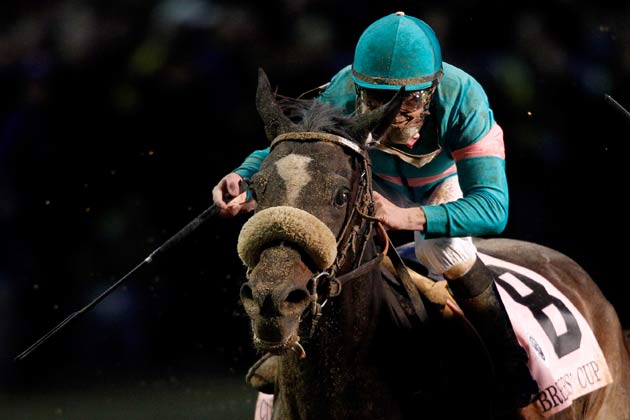Horse Racing: The moments of 2010
With 2010 drawing to a close, we asked our sport correspondents to cast their minds back over the last 12 months in their specialist fields to recount their moment of the year.

Your support helps us to tell the story
From reproductive rights to climate change to Big Tech, The Independent is on the ground when the story is developing. Whether it's investigating the financials of Elon Musk's pro-Trump PAC or producing our latest documentary, 'The A Word', which shines a light on the American women fighting for reproductive rights, we know how important it is to parse out the facts from the messaging.
At such a critical moment in US history, we need reporters on the ground. Your donation allows us to keep sending journalists to speak to both sides of the story.
The Independent is trusted by Americans across the entire political spectrum. And unlike many other quality news outlets, we choose not to lock Americans out of our reporting and analysis with paywalls. We believe quality journalism should be available to everyone, paid for by those who can afford it.
Your support makes all the difference.Among the various frailties that unite those fascinated by champion thoroughbreds, none is more awkwardly perennial than the tendency to treat the latest one as the best. In the past three years alone, different people have proposed Zarkava as the best filly of the modern era; Sea The Stars as the best colt; and Kauto Star as the best steeplechaser. This time last year, meanwhile, many of us were nursing incautious expectations for St Nicholas Abbey, one of the most exciting juveniles anyone could remember. Needless to say, his subsequent disappearance has not prevented anyone reprising the same kind of talk about Frankel, who beat a Dewhurst field saluted in advance - almost inevitably - as the best ever.
The claims here advanced for the defining moment of 2010 are only a little more conservative. Quite where Zenyatta ranked among the great American racehorses is admittedly a matter of polemics, to which her true fans will remain indifferent. Yes, they still resent the prejudices that persuaded Horse of the Year voters to favour Rachel Alexandra last year, and may yet cause them to go with Blame this time round. But they know what truly set her apart. And it wasn't something that could ever be quantified in pounds and lengths.
It certainly wasn't the fact that she would fit in here, or there, among the epoch-making names that have decorated the American sport. True, she had to be exceptional to build up a sequence of 19 wins from 19 starts, not least in beating colts from either side of the Atlantic in the 2009 Breeders' Cup Classic. But the fact is that barely an hour before the 2010 version, the 20th and final race of her career, another mare had become the first horse to win three races at the Breeders' Cup. In the process, moreover, Goldikova had renewed a sense of wonder about Zarkava, who had thrashed her over a mile in her youth. In the event, Zenyatta was unable to match Goldikova's feat. But the manner of this, her only defeat, proved so richly instructive of her quality and character that it is offered, unabashedly, not merely as the abiding memory of 2010 - but as one of the very best races of all time.
For in one respect Zenyatta was surely a match for them all - certainly for Goldikova, Zarkava and Sea The Stars, and perhaps also for those whose centuries of achievement these recent champions are supposed to have subsumed. Because it is difficult to imagine that any thoroughbred has harnessed such brilliance to greater charisma.
Many misunderstood her defeat, in the freezing dusk of Churchill Downs on November 6, as a moment of desecration. They spread their bitterness between Mike Smith, her jockey, who was mistakenly thought responsible for her own reluctance to pursue the field in the early stages; Blame, the colt who just stemmed her astounding, desperate late charge in a photo; and the savage realities that had intruded, in the very last stride of her final race, upon the dream-like perfection of her career.
But they should instead view her melodramatic introduction to fallibility - from her extrovert, distracted behaviour beforehand, to the unfeasible dynamics of the race itself - as the light that put all her other achievements in meaningful perspective. Anyone new to the story can look up the reports filed from Louisville at the time. If they convey even a fraction of the way it felt to be there, it will be worth the trouble. But you can rest assured, regardless, that hindsight suggests no diminution in the agonised, unforgettable glories Zenyatta discovered in imperfection.
Join our commenting forum
Join thought-provoking conversations, follow other Independent readers and see their replies
0Comments